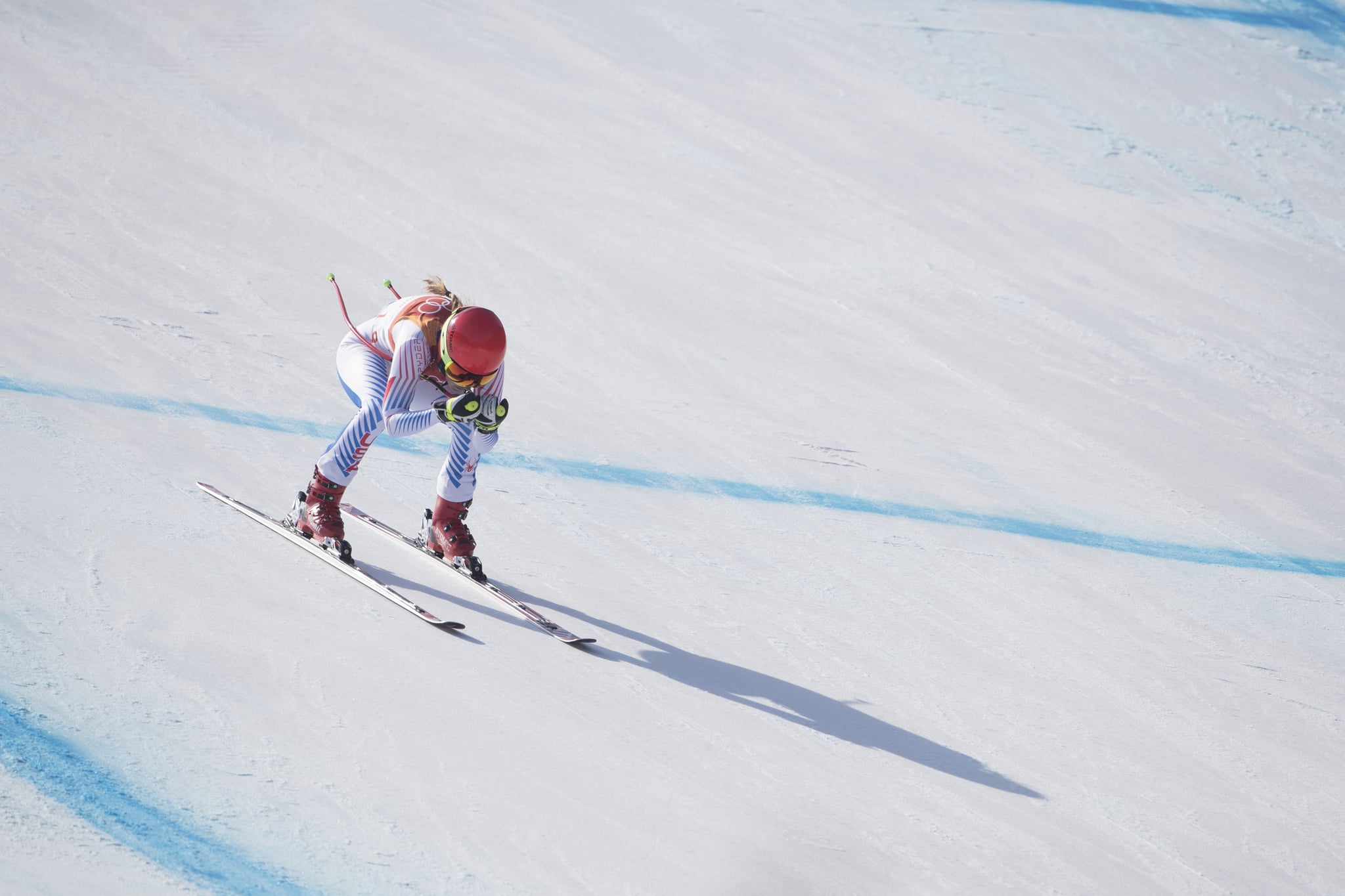
Watch even a few minutes of downhill skiing, and it will probably come as no surprise that downhill is the fastest of the Olympic alpine skiing events. In this discipline, athletes try to clock the fastest time possible by racing down a steep slope in a tucked position, dodging gates, risers, and the mountain’s rigid terrain. Sounds pretty impressive, right? I thought so, too — and then I learned just how fast these speed demons actually fly.
According to the official Olympic website, downhill skiers reach speeds of about 80 mph, though they can travel up to 100 mph depending on the course. However, they don’t always maintain that speed throughout the run. Similar to other alpine skiing events, turns and even the condition of the slope can affect a skier’s momentum. Despite all of this, downhill still remains the fastest of the skiing disciplines. For reference, athletes who compete in giant slalom typically reach speeds around 50 mph, while slalom skiers clock in around 43 mph.
While downhill may be one of the most basic courses in alpine skiing, it’s also one of the most dangerous. The risers (or small hills) and vertical drop on the course help boost an athlete’s speed. However, turning too soon or too quickly — or worse, losing their balance — can cost a skier a spot on the podium or, in more serious cases, lead to an injury. To prevent the latter, downhill skiers try to remain in a tucked position throughout their run. This not only helps with balance but also makes them more aerodynamic, increasing their speed.
The level of athleticism and speed on display in downhill skiing always makes it one of the most anticipated events of the Winter Games. Be sure to tune in when the 2022 Winter Olympics in Beijing kick off on Friday, Feb. 4.
